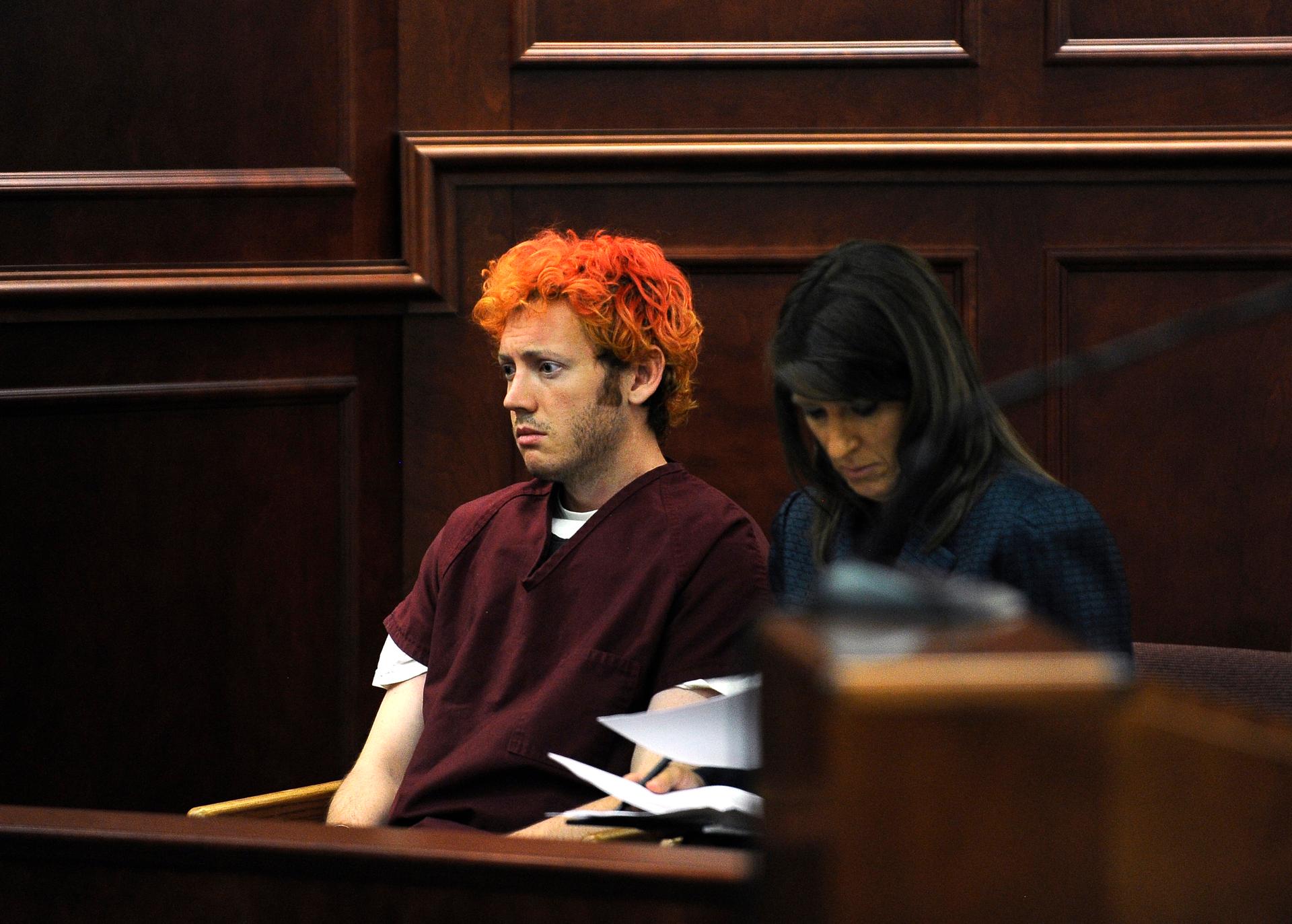New Yorker contributor Adam Gopnik reflects on Colorado shooting
Colorado shooting suspect James Holmes sits with a public defender during his first court appearance in Aurora. (Pool photo via Reuters.)
Adam Gopnik has written frequently — too frequently, he laments — about the gun rampages that convulse America.
After the recent attack at a Colorado movie theater showing “The Dark Knight Rises,” Gopnik wrote in the New Yorker, “The killings will go on; the cell phones in the pockets of dead children will continue to ring; and now parents can be a little frightened every time their kids go to a midnight screening of a movie designed to show them what stylized fun violence can be.”
The suspected shooter, 24-year-old James Holmes, is accused of killing 12 people and wounding 58 more when he opened fire inside a crowded movie theater in Aurora, Colo., during a midnight showing of the latest Batman movie last Friday. He is now in custody and is due to hear the charges against him at a court hearing scheduled for Monday, the Associated Press reported.
Gopnik’s own 17-year-old son was at another theater’s midnight screening last Friday. He says he’s had a long, ongoing conversation with his son about the effects of violence in pop culture, but it’s open-ended.
“The problem, I always think, when we talk about these things is that we want causality. And culture doesn’t give us causality,” Gopnik said. “But there’s connectivity without causality. … The connectivity of a culture is a deep thing.”
Gopnik, who lived in Europe for many years, said cultures expressed “crazy” in different ways. It seems to him that mass murder more often has a political dimension there — as in Oslo a year ago — unlike in the U.S.
“We tend to have fantasies of self-expression through the annihilation of others,” Gopnik said.
Hollywood can open great vistas of imagination for us, but for Gopnik the cost of movie violence has gotten too high.
“Is it incumbent on us always to pretend that we just love watching scenes of massacre and mass destruction?” Gopnik asked, citing how the horrors of Sept. 11 seemed eerily similar to the destruction in big-budget disaster movies.
“It’s only when (disaster) actually happens that you realize what its actual content is,” he said. “For me, at least, that kind schizophrenic divorce between the actual content and the imagined content of our lives becomes uglier and uglier as I get older.”
